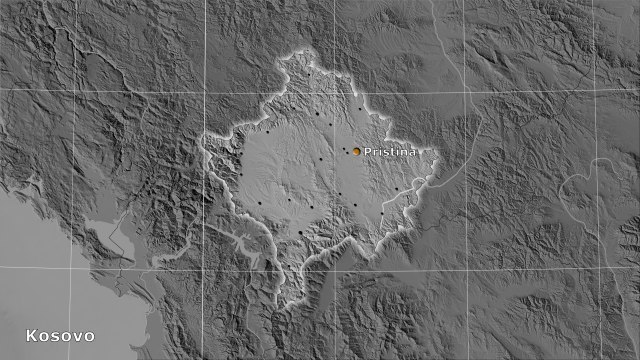Turkish President Erdogan’s statement that Turkey works on increasing the number of countries that recognize Kosovo’s independence is essentially a repetition.
Turkish President Recep Tayyip Erdogan has been saying that for years and decades when it comes to the Balkans and Kosovo, although recently there have been cracks in the relations between Ankara and Pristina, longtime Serbian media correspondent from Ankara Vojislav Lalic told Sputnik about Erdogan’s new message that contradicts Serbia’s national interests.
Turkish President Recep Tayyip Erdogan’s attitude towards this topic is not accidental, just as it is not accidental that he mentioned Kosovo before his visit to northern Cyprus.
Turkey has a special relationship with Kosovo and that represents a continuity of Turkish policy, despite recent setbacks. But Turkey does not have the strength to “push” the recognition of Kosovo in the entire Islamic world, let alone in the UN.
“Now 114 countries recognize Kosovo and we want that number to increase. We hope that this year at the United Nations General Assembly, at the meeting I will have with Biden, we will discuss this topic again, that we will work together on the recognition of Kosovo,” Erdogan said, among other things, to Turkish journalists before leaving for the Turkish part of divided Cyprus.
Turkey is pushing for Kosovo’s independence in the Islamic world

Turkey was the second country in the world to recognize Kosovo’s self-proclaimed independence, along with the United States, Albania and Afghanistan, Lalic recalls.
“Turkey is campaigning primarily within the Organization of Islamic Cooperation, which brings together 57 countries, and Erdogan has repeatedly tried to unanimously recognize Kosovo’s independence, but failed, because there are many countries that do not want to join, if not because of anything else, then because of similar problems they have in their territory”, he explains.
Among the members of the Organization of Islamic Cooperation in which Ankara’s efforts did not yield results are Algeria, Azerbaijan, Turkmenistan, Morocco, Lebanon…
Erdogan’s attitude towards Kosovo and Metohija is not accidental, adds Lalic and recalls the statement of the Turkish president from 2013 given in Pristina, that “Kosovo is Turkey and Turkey is Kosovo”, which is why the then Serbian President Tomislav Nikolic canceled the tripartite meeting between Serbia, Turkey and Bosnia-Herzegovina.
Also, in 2010, during the visit of the then president of the interim institutions in Pristina, Hashim Thaci, Erdogan organized talks between Thaci and the representatives of Greece and Syria in an effort for these countries to recognize the independence of Kosovo, also without success.
Message before the trip to Cyprus
All this shows that this is a special relationship, although lately there have been disputes in the Ankara-Pristina relations, says Lalic.
Pristina recently opened an embassy in Jerusalem, which was very difficult for Erdogan. On that occasion, the Turkish president stated that he experienced it as a betrayal not only of Turkey, but also of him personally. “But it is obvious that Ankara realized that it was an international game, that Donald Trump played a key role, and that Israel in turn recognized Kosovo as the first Muslim country to open an embassy in Jerusalem. Erdogan clearly understood that he had to get over some misunderstandings”, Lalic thinks.
However, although he has been trying to impose himself lately both as a leader and as a protector of Muslims in the world, Erdogan is aware that he cannot bypass Serbia if he wants to be present in the Balkans, our interlocutor adds. He is trying to develop relations with our country according to the system “let’s leave controversial issues aside”.
In a statement on the continuation of lobbying for the independence of Kosovo, Turkish President announced that he would raise the issue at the UN General Assembly, as well as during the meeting with US President Joseph Biden. He will do it. However, he will not achieve any greater success, Lalic believes.
If he is not already able to reach a consensus on the Kosovo issue within the Organization for Islamic Cooperation, how can he influence other UN members, he wonders. On the other hand, U.S.-Turkish relations are burdened with numerous unresolved issues, so it is difficult to expect Kosovo to be on the agenda of the Biden-Erdogan meeting.
Erdogan spoke about Kosovo before leaving for northern Cyprus, where Turkish Cypriots declared unilateral independence in 1974, which has so far been recognized only by Ankara. In Lalic’s opinion, the moment for the statement was not chosen by chance.
“He actually wants to do in Cyprus what he supports in Kosovo – he wants the Turkish minority in Cyprus to declare an independent state. But he will hardly be able to gain supporters for that either. After all, the EU said before his visit that it would never recognize two states in Cyprus”, Lalic concludes./ B92.net




















































